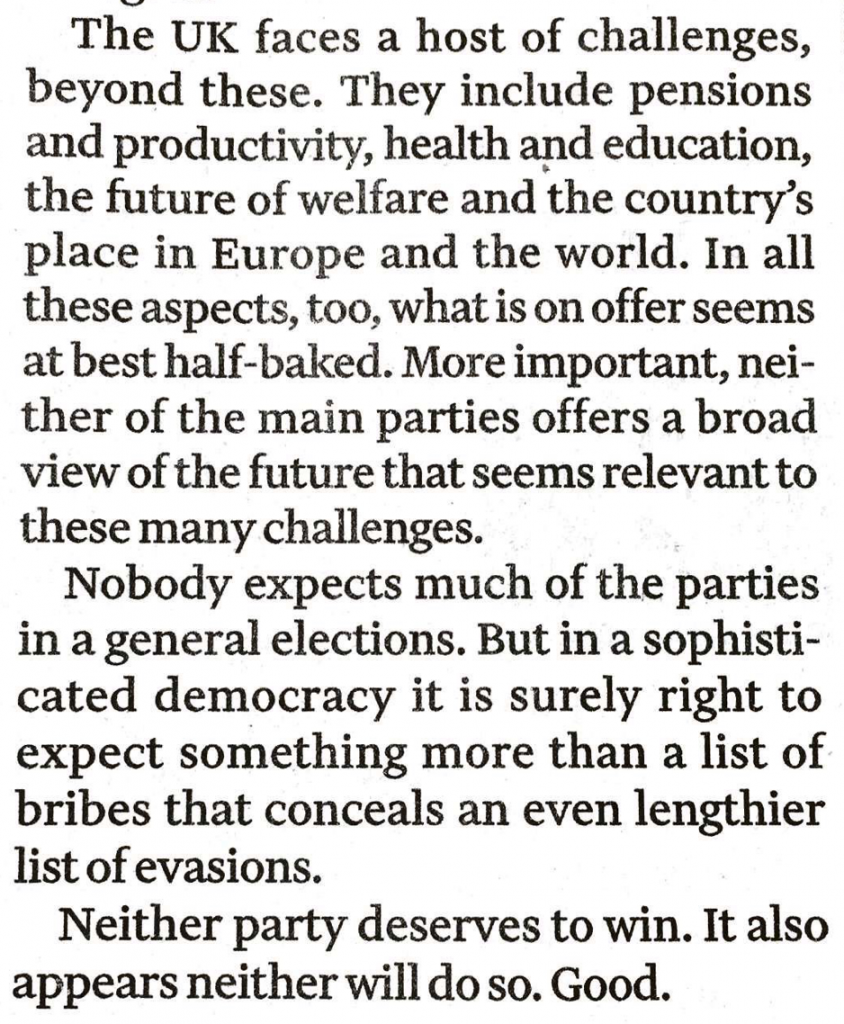Interesting letter sent by a Cambridge property agent to its (landlord) clients. Excerpt:
“As a letting agent, we are not interested in promoting any particular political party, but do feel that it is important to alert you, as a valued client, to the potentially damaging outcomes of Labour’s proposed policies. These are policies that will be extremely detrimental to you.”
The message goes on to outline possible outcomes of Labour’s plan to abolish fees for tenants.
“Whilst at first glance this might sound as if it is a good thing for tenants, I can assure you that it will have the opposite effect. Should tenant fees be abolished these costs will be passed to the landlord and if this happens there is a very strong possibility that many landlords will either increase rents to recoup their costs or they will withdraw from the market and sell their properties.”
And:
“There is a very strong possibility that you, and thousands of other tenants, could lose your homes and find it almost impossible to source another rental property because the supply of good quality accommodation will dry up”.
Note the opening assurance about not promoting any particular political party.
Interesting also that the ‘advice’ didn’t work. The Labour candidate was elected!
Memo to self: Avoid Belvoir.



